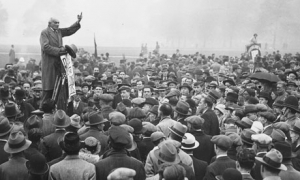Skills
When generating a character, you get 5 points to put into non-magic skills as well at 2 points that can be put into non-magic or magic skills. Each skill has three levels available at game start and a fourth available in game which represent different levels of competence in that skill area. The four available levels are as follows:
| Pts | Level | |
|---|---|---|
| 0 | Untrained | You have no training in this skill and cannot use it to any particular effect. |
| 1 | Trained | You have basic training in this skill and can do simple things with it. |
| 2 | Experienced | You have been using this skill for a while and know how to do fairly impressive things with it. |
| 3 | Advanced | You are incredibly talented in this skill and are able to use it to great effect. |
| 4 | Master | You have mastered this skill and most things in its domain come naturally to you. |
In order to advance to the 4th level in any skill, you must find someone who would be willing to teach you to that level.
Academic
Academic skill is the art of acquiring information and research - particularly of Magic. Ability in Academic skill will allow you to extract a lot more information from reading and academic research than others would normally find, and also to learn to read ancient and forgotten languages and texts which could assist in understanding strange new magics.
- Untrained: You gain as much from reading a book as the next person.
- Trained: You're able to understand a little more from reading a book or research than you would have otherwise spotted. Example: an undergraduate.
- Experienced: From reading a book you can learn a new subject quickly and easily, picking up on ideas that others would take months of work to realise. Example: a postgraduate.
- Advanced: Your general knowledge is exquisite and your aptitude for learning is profoundly impressive. Example: a professor.
- Master: You are basically magical Wikipedia. Example: Dumbledore.
Combat
The Combat skill is that of fighting - whether unarmed, using melee or ranged weaponry, ability in Combat will give you the edge in battle..
- Untrained: You are as combat ready as the next person.
- Trained: You could fire a gun in the right direction and fend an amateur off in a fight. Example: someone who's played a lot of Call of Duty, an Oxford Assassin.
- Experienced: You have good aim and good reflexes and can handle yourself in a fight. Example: a professional paintballer.
- Advanced: You are trained in most weaponry and are fearsome in a fight. Example: a soldier, a professional fencer.
- Master: You are incredibly well trained in weaponry and fighting. Example: a Commando.
Endurance
The Endurance skill represents your physical fitness as well as your ability to survive in the non-magical world (without taking into account Magic), including non-magical first aid. If you were stuck in the middle of nowhere with no magic to save you whatsoever, ability in Endurance would be what you use to survive, also representing your ability to run faster and jump higher.
- Untrained: You are as enduring as anyone else.
- Trained: You are slightly fitter, slightly faster, know a little first aid and could probably just survive for a few days on your own in the wilderness. Example: a Scout.
- Experienced: You are quite fit, fairly fast, could deal with a broken arm, could easily survive for several days on your own in the wilderness. Example: a Scout Master.
- Advanced: You are very fit, very fast, very strong, could qualify for St John's Ambulance and could comfortably survive in the wilderness for weeks without magic. Example: Bear Grylls.
- Master: You are a fitness god, as fast and strong as an Olympian, could qualify as a paramedic and could survive almost indefinitely in the wild. Example: Bear Grylls if he was a doctor.
Investigatory
Investigatory skill is the art of unearthing information about other people and making deductions. Ability in Investigatoring will allow you to discover the truth of any situation. Of course, you need to know where to look first…
- Untrained: You can see the obvious, but that's about it.
- Trained: You can spot things that seem out of place in an environment. Example: a student journalist.
- Experienced: You know where would be a good place to look for the information you need, and can usually find it. The conclusions you draw from it are generally fairly reliable. Example: a real journalist.
- Advanced: Tracking down the information you need is easy, and the deductions you make from this show incredible insight. Example: a private investigator.
- Master: You easily notice fine details and draw connections between them that no-one else would ever see, and when that information isn't available, you know precisely where to look to find it. Example: Sherlock Holmes.
Oratory
Oratory skill is the art of speech - not just of clever or impressive speech-making but of diplomacy and the art of persuading others to help you, of convincing them with your words. Ability in Oratory does not mean people will instantly believe you or do what you say, but will help you get your points across and you will generally come across as more persuasive.
NB: this skill will not work on PCs; you will have to persuade them yourself!
- Untrained: Your words are as persuasive as anyone else's but not particularly special.
- Trained: Your words carry some weight - people will listen to you when you talk. Example: that bloke down the pub that everyone seems to listen to.
- Experienced: Your words carry a lot of weight and you are quite persuasive when you speak. Example: a front-bench MP.
- Advanced: Your way with words is extraordinary. People will listen to you and often their minds are changed by what you say. Example: a party leader.
- Master: Your tongue is more silvery than the spoon that the Queen had in her mouth when she was born. If words win wars, then yours could conceivably conquer the world. Example: Steve Jobs.
Sneakery
The Sneakery Skill is the art of moving around undetected, of getting past doors and avoiding the pesky CCTV. Ability in Sneakery allows you to get around without being seen if you don't want to be, but note that it does not actually hide you in the same way magical Illusion can - you cannot sneak when someone knows you are there. It's also worth noting that others around you may not have the same sneakery skill and while your skill can help direct them, they may just not be as adept as you.
- Untrained: You are as noticeable as anybody else.
- Trained: You know how to stick to the shadows and how to move more softly. Example: a teenager good at slipping out of the house at night.
- Experienced: You know how to sneak past people and how to break into somewhere crudely but effectively. Example: an opportunistic thief.
- Advanced: You know how to pick locks, how to tell when someone's in and memorise patterns of movement to get around watches. Example: a cat burglar.
- Master: You are incredibly light-footed, silent as the night and know how to blend into it as well. Example: a Ninja.
Strategy
The Strategy skill represents skill in organisation and tactics. Ability in Strategy is applicable not only to military endeavours but for business and administrative strategy too - pretty much anything that involves coordinating a number of people.
- Untrained: You are as administratively minded as anyone else.
- Trained: You are slightly adept at administrative or tactical problems and can organise small groups with ease. Example: a GM.
- Experienced: You are fairly good at administrating and strategising and so find organising larger groups to do something, or a smaller group to greater effect, comes naturally. Example: a school headmaster.
- Advanced: You are an administrative, tactical genius and can organise vast numbers of people as well as devising excellent tactics for smaller groups. Example: an army commander.
- Master: You are very nearly a god of Administration and Strategy. All bow before your tactical prowess. Example: a CEO of a multinational corporation.







